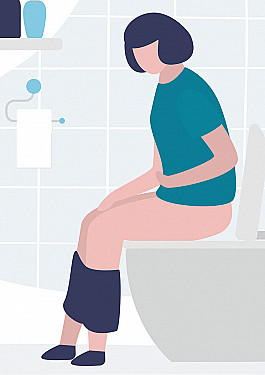Recent Blog Articles

Lead poisoning: What parents should know and do

How does waiting on prostate cancer treatment affect survival?

Does running cause arthritis?

Is alcohol and weight loss surgery a risky combination?

Preventing ovarian cancer: Should women consider removing fallopian tubes?

Healthier planet, healthier people

Is snuff really safer than smoking?

Will miscarriage care remain available?

Considering collagen drinks and supplements?

Does less TV time lower your risk for dementia?
Cholecystectomy
What Is It?
Cholecystectomy is the surgical removal of the gallbladder, the small saclike organ located near the liver in the upper right side of the abdomen. It is attached to the main duct that carries bile from the liver into the intestine. Bile helps your body to break down and absorb fats. The gallbladder temporarily stores bile from the liver. When you eat, the gallbladder contracts, and squeezes extra bile into the intestine to aid digestion.
There are two ways to remove the gallbladder:
- Traditional surgery - The surgeon cuts open the abdomen and removes the gallbladder through an incision that is about 6 inches long. The abdomen is then stitched closed again.
- Laparoscopic surgery - The surgeon makes four small (less than an inch) incisions for a laparoscope and instruments. A laparoscope is a tube-like instrument with a camera for viewing, and with it the surgeon can to guide the surgical instruments to remove the gallbladder. The gallbladder is cut away from the liver and the bile duct and removed through one of the small incisions.
Over 90% of the time, laparoscopic surgery is used because it requires a shorter hospital stay, is less painful, and has a shorter recovery time compared to traditional surgery. Traditional surgery is usually used because the person has significant abdominal scarring from prior surgery, severe inflammation, unusual anatomy, or other factors that make surgery with a laparoscope very difficult and riskier.
To continue reading this article, you must log in.
Subscribe to Harvard Health Online for immediate access to health news and information from Harvard Medical School.
- Research health conditions
- Check your symptoms
- Prepare for a doctor's visit or test
- Find the best treatments and procedures for you
- Explore options for better nutrition and exercise
I'd like to receive access to Harvard Health Online for only $4.99 a month.
Sign Me UpAlready a member? Login ».
Disclaimer:
As a service to our readers, Harvard Health Publishing provides access to our library of archived content. Please note the date of last review or update on all articles.
No content on this site, regardless of date, should ever be used as a substitute for direct medical advice from your doctor or other qualified clinician.
Free Healthbeat Signup
Get the latest in health news delivered to your inbox!



